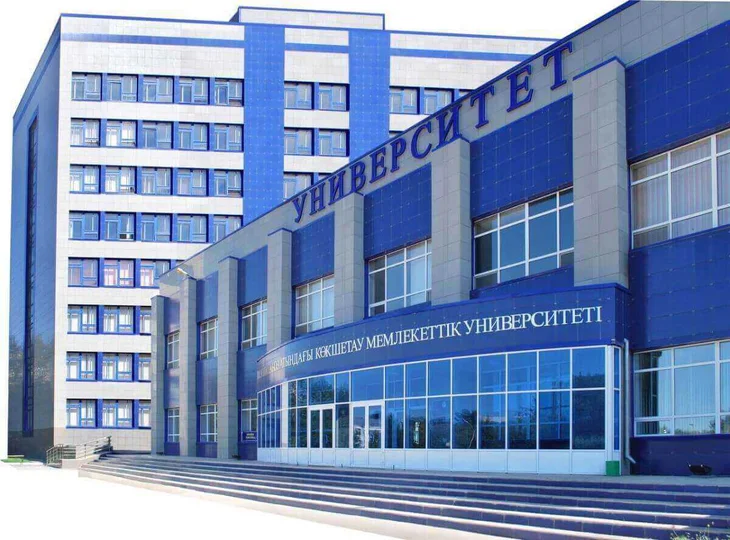Kazakh language and literature

Educational program code
7М01701
Language of instruction
Kazakh
Learning level
Graduate
Duration of study
2 years
Objectives of the educational program
Preparation of a Master of pedagogical Sciences who meets the needs of society in the labor market of the Republic of Kazakhstan, who owns a system of scientific knowledge in the context of the paradigm of higher education in fundamental and applied sciences of the world and national scale, based on anthropocentrism and aimed at forming new conceptual ideas in the theory and practice of the Kazakh language and literature, teaching methods, able to apply his knowledge in pedagogical practice and in solving social and professional tasks.
- Management psychology
- History and philosophy of sciences
- Pedagogy of higher school
- Research culture and scientific ethics
- Foreign language (Professional)
- Actual problems of modern Kazakh terminology
- Theoretical bases of the periodization of the history of the language
- Mofopoetics in fiction literature
- The world literary process
- Functional-communicative syntax of modern kazakh language
- Theoretical problems of functional stylistics
- Directions of linguistics: ethnolinguistics and paralinguistics
- History of auxiliary words
- Cultural linguistics
- Methodology of the higher school
- Linguistics of the text
- The social meaning of modern kazakh literary language
- History of world literature
- Theoretical literary studies
- Theory of the drama genre
- Psychoanalytic literature studies
- Regional literature studies
Learning outcomes and competencies
- Apply new conceptual ideas and directions of philological and pedagogical sciences with high professionalism in research work in the context of the higher education paradigm, determine the role and place of science as a public institution; owns theoretical, methodological and technological achievements of domestic and foreign science, modern methods of scientific research. To comprehensively study the current problems of the world literary process, the history of the Kazakh language, new directions of linguistics and literary studies, to identify their features..
- Apply theoretical and practical knowledge to determine the functional styles of the Kazakh literary language based on the formed scientific views on methodological and philosophical topical problems of the humanities language-man-culture-determines the integrity of the ethnos, the stages of mythical consciousness, the archaic semantics of literary archetypes and myths, the functional and communicative aspect of syntax, analyzes discourse as communicative units of language, the act of communication, the genre of communication, the language situation.
- To compare modern trends of scientific knowledge and actual problems of philology in research work, studies syntax in functional and communicative aspects, the history of literature of the peoples of Western countries, ways of transmitting mythical motifs and folklore traditions in modern Kazakh prose, poetry, drama, masters the processes of fragmentation, cyclicity in the structure of a work of art. To argue their scientific views on the scientific heritage of regional literary critics, their place in the literary process, on the study of new words in relation to the conditions of the nomination, makes scientific forecasts
- Integrate knowledge on the basis of various scientific directions, based on an understanding of the contradictions and socio-economic consequences of the processes of globalization, implements research positions in interdisciplinary communication; form skills of high intellectual honesty in research activities, evaluate scientific views on the ways of occurrence, stages of development of human language, thereby formulate their opinion.
- Apply and choose correctly the ideas necessary for their intended purpose, in the context of scientific research, publish their results in the form of scientific articles, reports, analytical notes, do not distort, do not falsify scientific information in the course of research, do not allow plagiarism, observe scientific ethical principles, study methods and ways of independently solving research problems, deepen theoretical and practical knowledge.
- Possess theoretical knowledge in the field of pedagogy and methods of higher education on criterion assessment, based on formative and summative assessment, critical thinking, individual and group work, work with gifted students and leadership, public speaking, the basics of inclusive education, the system of quantitative knowledge, search and research the latest discoveries in language, methodological sciences, applies communicative, professional and pedagogical competencies in pedagogical practice.
- Analyze the social significance of the philological specialty, constantly improve the professional personal qualities of a teacher, integrate modern professional knowledge for competitiveness in the labor market, master the basics of the professional pedagogical culture of a higher school teacher, synthesize the latest innovations in language, literary, methodological sciences, form modern creative activity. Understand the methods and technologies of research in the teaching of text science and proves the laws of text formation.
- Apply knowledge and understanding of the methods of organizing professional activities, the psychology of cognitive activity of students in the learning process through the principles of Kazakh patriotism, distinguish the mental characteristics of leadership, critically compare various teaching technologies, typological samples of oral literature of Kazakh folklore in other countries, be able to analyze world and national scientific concepts in new areas of linguistics, obtain scientific results focused on solving the problems of development of Kazakh society.
- To make creative decisions when performing tasks of studying the content of knowledge accumulated at the intersection of disciplines, practical application of the results of scientific work in their professional activities; systematic deepening of communicative competence within the framework of international standards of foreign language education on the basis of further development of skills and abilities of active language proficiency in professional activities.
- To apply effectively the technology of criterion assessment (FO, SOR, SOC, etc.) and the methodology of specialized training in accordance with the content of the 12-year educational program, to demonstrate knowledge in the field of pedagogical management, to apply skills and abilities in the implementation of pedagogical monitoring. To be fluent in foreign languages at a professional level when using information-analytical and information-bibliographic work, to form active skills and abilities in professional activity.